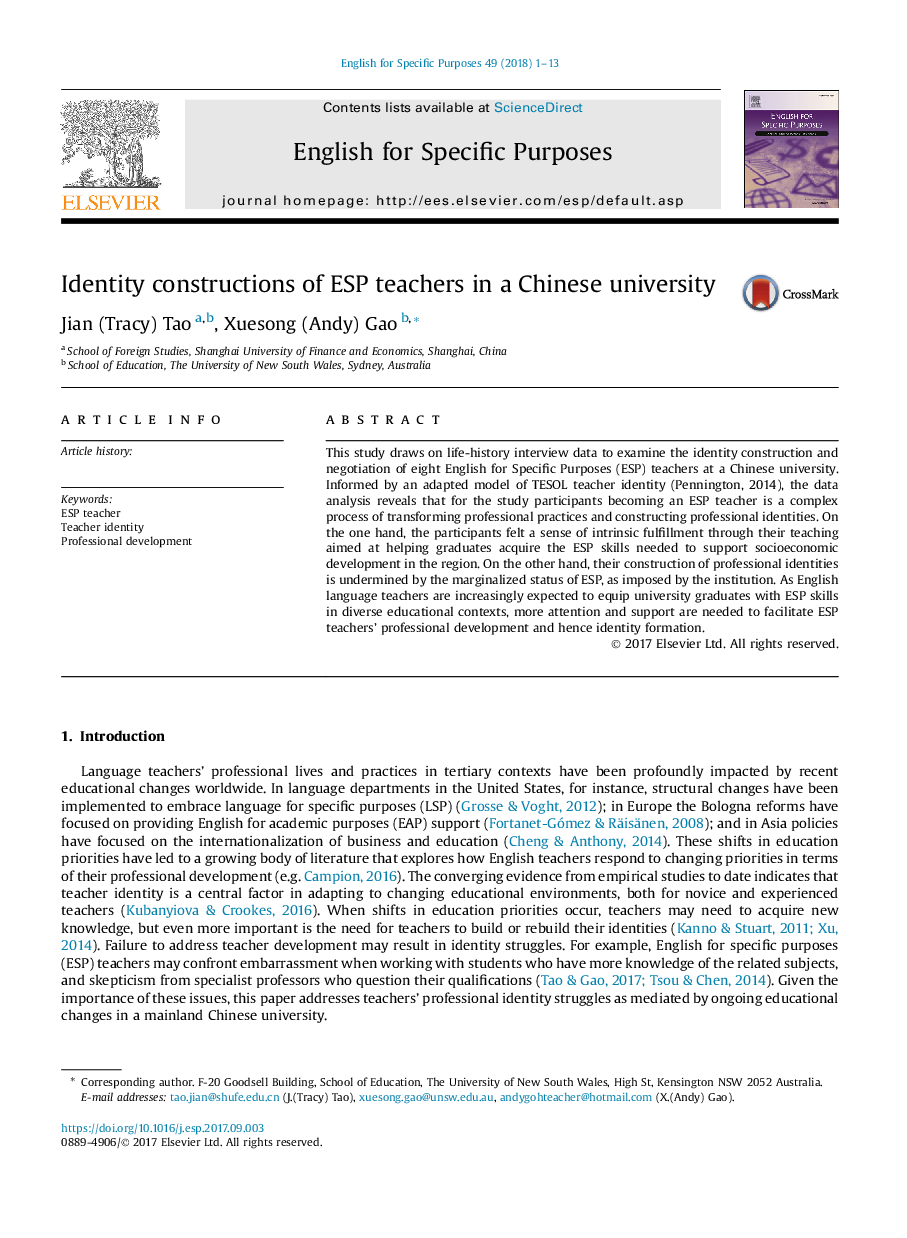| Article ID | Journal | Published Year | Pages | File Type |
|---|---|---|---|---|
| 6841034 | English for Specific Purposes | 2018 | 13 Pages |
Abstract
This study draws on life-history interview data to examine the identity construction and negotiation of eight English for Specific Purposes (ESP) teachers at a Chinese university. Informed by an adapted model of TESOL teacher identity (Pennington, 2014), the data analysis reveals that for the study participants becoming an ESP teacher is a complex process of transforming professional practices and constructing professional identities. On the one hand, the participants felt a sense of intrinsic fulfillment through their teaching aimed at helping graduates acquire the ESP skills needed to support socioeconomic development in the region. On the other hand, their construction of professional identities is undermined by the marginalized status of ESP, as imposed by the institution. As English language teachers are increasingly expected to equip university graduates with ESP skills in diverse educational contexts, more attention and support are needed to facilitate ESP teachers' professional development and hence identity formation.
Related Topics
Social Sciences and Humanities
Arts and Humanities
Language and Linguistics
Authors
Jian (Tracy) Tao, Xuesong (Andy) Gao,
